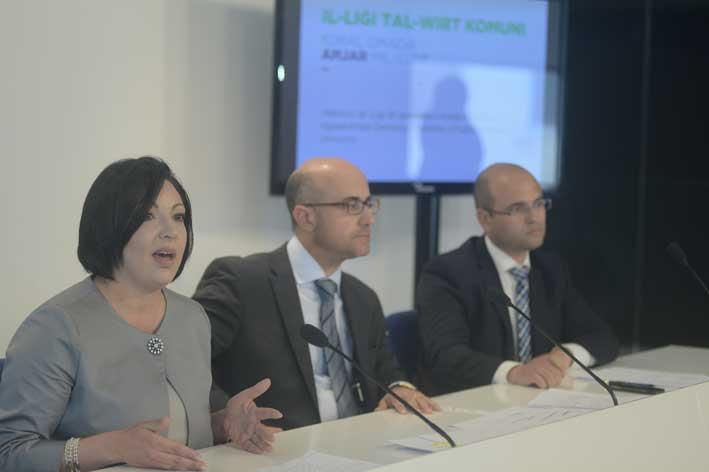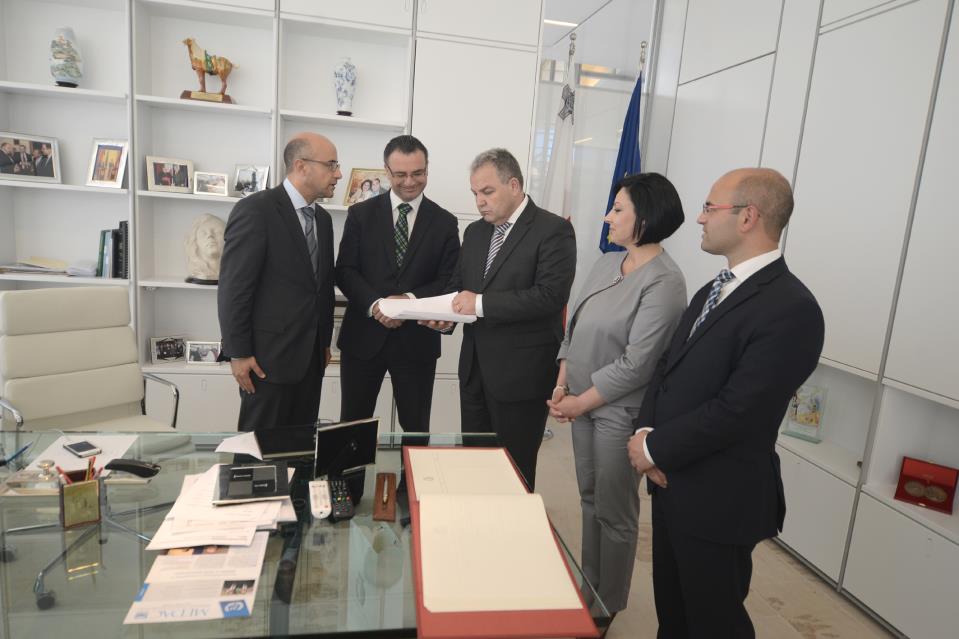The Nationalist Partytoday presented a Private Members’ Bill to the Speaker of the House concerning public domain property. This comes after a number of NGOs have been calling for the proper preservation and safeguarding of government land, which is public domain.
Describing it as a groundbreaking bill and a first for Malta, PN MP Jason Azzopardi explained that his bill, if enacted, will lead to the government imposing restrictions upon itself for the first time when it comes to selling or transferring its property, the government being the largest land owner. Also, any property, whether movable or immovable, where grey areas exist or are not yet public domain, can in future become public domain through this bill.

The bill was presented by three PN MPs in all: Dr Azzopardi, Marthese Portelli and Ryan Callus.
In a nutshell, this law is the key to establishing a clear set of rules tied to the government’s powers and duties when dealing with the nation’s property.
He further explained the difference between extra commercium property which is not subject to a contract such a fortifications, the coastal perimeter (including the foreshore), seabed and subsoil, open countryside, or anything which is of historic or cultural value, and inter commercium - property which is subject to a contract. The bill speaks about extra commercium property. In the case of the coastal perimeter, this can affect land reclamation requests, including the development of artificial islands.
To this day, certain valleys for instance, can be subject to a contract because they are not all claimed as public domain. But this bill will change this.
If enacted, this bill will enable any person, including environmental NGOs, to make a request to government to declare a piece of land as public domain. The government will be bound to give a reply to the individual or group who made such request within four months. In the event the reply is negative, the government would have to give a detailed explanation to why it turned down the request.

At present, there are Legal Notices under ‘Special Laws’ which exist aimed at safeguarding certain movable or immovable property which is public domain but there does not exist a law which covers all public domain property.
“In our Civil Code, we often do not find clear definitions but rely on the meanings attributable to concepts in Roman law, which is the source of many of its provisions.
“The foreshore is one such example. Although it is a very old concept and there are many court judgments about it, we do not have a clear definition as yet. This bill aims to change this,” Dr Azzopardi, who is a lawyer by profession, said.
Dr Azzopardi said that this law is intended to apply for future generations and is not intended to affect any private rights which are validly acquired prior to this law coming into force.
“This bill will safeguard anything which is considered or yet to be considered as being of public domain,” he said.
In the event a piece of property is declassified, the bill proposes that it will be preserved in its entirety and should be given back within 100 years.
This is a paradigm shift, we are thinking outside the box here and is of great importance for those who hold dear to their heart the environment, Dr Azzopardi said. Dr Azzopardi urged NGOs to propose to government land which should become public domain since this bill gives NGOs empowerment like never before.
The PN, Dr Azzopardi said, has bound itself to imposing this law on itself if elected to office in the event a Labour government won’t introduce this law during this legislature or any others which follow for that matter.
Dr Azzopardi lamented that a number of private members’ bills presented by the Opposition were left on the shelf by government, adding that this bill should go beyond party politics and garner cross-party consensus. This is a bill we have a common interest in: safeguarding our heritage, he added.
Dr Portelli said that the prime objective of this bill is to safeguard historical assets and our heritage. She said this ensures that the government is responsible in how it tackles the issue of public domain property and the process leading to it.
Mr Callus said that this bill will ensure that anything which enters the public domain or is removed for a temporary period has to be done through this Act.